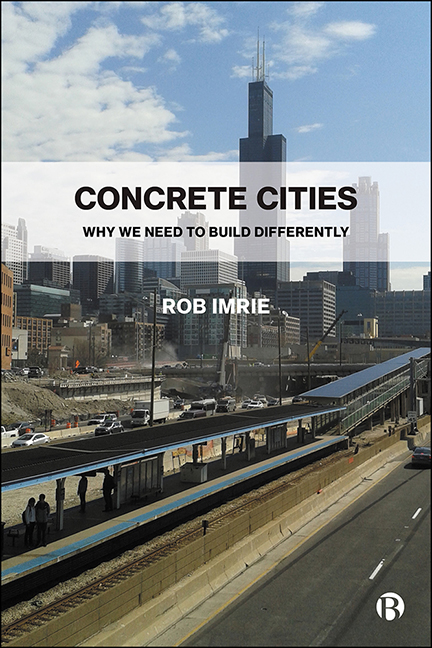Book contents
- Frontmatter
- Contents
- List of Figures
- About the Author
- Preface
- 1 Introduction: The Omnipresent Nature of Building
- 2 The Significance of Building and Construction
- 3 Building and the Construction State
- 4 Speculation and Building Booms
- 5 Disruption, Displacement and Dispossession
- 6 Demolition: Wasting the City and Teardown Building
- 7 Why Building More Housing Will Not Work
- 8 Building That Matters to People
- 9 Constructing for Species Survival
- 10 Building and Construction That Cares
- Notes
- References
- Index
6 - Demolition: Wasting the City and Teardown Building
Published online by Cambridge University Press: 30 April 2022
- Frontmatter
- Contents
- List of Figures
- About the Author
- Preface
- 1 Introduction: The Omnipresent Nature of Building
- 2 The Significance of Building and Construction
- 3 Building and the Construction State
- 4 Speculation and Building Booms
- 5 Disruption, Displacement and Dispossession
- 6 Demolition: Wasting the City and Teardown Building
- 7 Why Building More Housing Will Not Work
- 8 Building That Matters to People
- 9 Constructing for Species Survival
- 10 Building and Construction That Cares
- Notes
- References
- Index
Summary
Introduction
On a Sunday morning in May 2016, 5 Norfolk Court, high-rise social housing located in the Gorbals, one of Glasgow's inner-city neighbourhoods, was blown up. It was the last demolition in a neighbourhood that, over the years, had become synonymous with poverty and poor housing, and its destruction seemed symbolic of the dismantling of a community's social fabric. The demolition of Norfolk Court can be viewed in many different ways. For some local residents, it was the welcome clearance of buildings that had failed to provide basic amenities, which were delipidated and where the wind whistled through cracks in the facades (Daily Record, 2013: 1). The poor quality of construction, and the lack of maintenance by the council, meant that the buildings suffered from chronic dampness, and the breakdown of facilities such as lifts was commonplace. As a member of the Gallagher family said, ‘the buildings were old, and had a lot of problems. It was for the best that they come down’ (quoted in New Gorbals Housing Association, 2016: 1).
Other residents were less happy, as they saw the destruction of Norfolk Court as the loss of social ties in their local community and the onset of an uncertain future. As one local resident, Katrin Reedik, recalled just before the demolition of number 66 Norfolk Court in 2013: ‘I just wish that they would refurbish the blocks instead of destroying them…. If they were well-maintained and in good order, I would happily stay. I don't want to go’ (Daily Record, 2013: 1). Another resident, Betty Olsen, felt unhappy about having to leave and lose close contact with neighbours and friends: ‘We all looked out for each other. It's a bit different now and a lot of the people we knew have died. There are drugs and problems but we loved it then and we still love it now. We feel terrible, we don't want to go’ (Daily Record, 2013: 1). This view was echoed by Neil Freel, a long-standing resident, who said: ‘it will be sad when they’re gone. I would like to see them refurbished. If they are looked after properly they can be great’ (Daily Record, 2013: 1).
- Type
- Chapter
- Information
- Concrete CitiesWhy We Need to Build Differently, pp. 110 - 136Publisher: Bristol University PressPrint publication year: 2021



